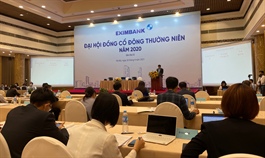Foreign bank moves pointing to repositioned focus
Foreign bank moves pointing to repositioned focus
Banking giant Citigroup has decided to shut down its retail division in 13 markets, including Vietnam, to reset focus on institutional clients. Kent Wong, partner, head of Banking and Capital Markets at VCI Legal, explained to VIR’s Celine Luu why some foreign lenders are withdrawing, and how fierce the competition between international and locally-invested banks is in Vietnam.

Kent Wong, partner, head of Banking and Capital Markets at VCI Legal
|
Several international banks such as Citibank and ANZ have decided to quit the retail banking business in Vietnam and other regional markets. What considerations lie behind these decisions?
Over the years, ANZ has been advancing and retreating in Asia. At times, it gets caught up in a “super regional Asia strategy” and overextends itself, which is followed by a quick retreat to more familiar grounds. The recent announcement of selling six Asian retail and wealth businesses is part of this pattern, so we are not alarmed.
The rationale behind Citibank’s decision to withdraw from consumer banking in 13 markets – 10 of which are in Asia, including some major markets – is that investment capital and resources can be better deployed with higher returns in wealth management and other institutional business in other parts of Asia.
Both Citibank and ANZ are tech-savvy international banks that work with the core sectors of energy, natural resources, food and beverages, agribusiness, and institutional funds. Thus, their decision to retreat from these parts of Asia is somewhat disconcerting.
The connectivity of commercial banks in the region is a competitive advantage for ANZ but it is costly to maintain offices from Sydney through Singapore to Ho Chi Minh City just for corporate banking on a transactional basis, without being able to compete with large local players in commoditised products like payments.
What will be the consequences of these lenders closing their consumer business?
It should be no surprise for lenders like Citibank, which was present in Vietnam before 1975 and returned in 1993, that Asian business is risky, with non-performing loans, patchy risk management, and opaque corporate governance. Citibank seems to be surrendering the consumer playground to local players, forgoing a potential thriving business in fintech and e-payment tie-ups, as well as other mobile points of sale, and e-commerce.
The withdrawal was announced after Citigroup achieved record quarterly profits, so the decision is not a result of a negative impact on the group’s bottom line.
How do you assess the competition between foreign and local banks in Vietnam?
When evaluating banking products, retail customers often rely on criteria such as simplicity, efficiency, good customer service, and more.
Vietnamese commercial banks have the advantage of extensive nationwide banking networks that distribute products and services to customers and are knowledgeable about local habits and the business environment.
On the other hand, they are smaller than foreign counterparts which means they do not have the same financial gains potential or quality assets to back them up. They also have poor and low-quality products and services, with inefficient organisational structures run by unprofessional management.
With Vietnam’s increasing international economic integration comes increased capital transactions and banking system risks, while local banking management mechanisms are often deficient or incomplete. The ability of local banks to control money is also limited.
Furthermore, human resources with expertise in banking, international commercial law, or research and forecasting are thin on the ground, especially when one is looking for international standards.
Overseas banks have several advantages over local banks, including staff trained to international standards and professional service capabilities. Moreover, they operate to higher standards, which, to be fair, can also be a weakness because of the underlying rigidity and inflexibility.
However, they often provide effective support for foreign customers, such as language support. They also offer more diverse banking services, supporting foreign-invested enterprises.
Nevertheless, they also have clear weaknesses, which include rather rigorous processes which make it difficult to attract individual customers and offer lower interest rates than local banks. In addition, the service fees of foreign banks are rather costly for the local market.
What would be the recipe for success for foreign banks to attract more customers in Vietnam?
Currently, foreign banks in Vietnam have many advantages over local domestic banks in terms of expertise, manpower, operating procedures, as well as technology. There is no magic recipe for success for foreign banks, but there are definitely ingredients which should be added to adapt to local tastes.
Rather than trying to penetrate underbanked markets in Asia en masse, they might consider targeting a select group of corporate banking clients where their competitive edge shines such as trade finance for Asian companies dealing with Australia and New Zealand. If there are no competitive advantages in commercial banking, expertise, or network access, they would find it difficult to do well in commoditised products like retail transaction banking from sheer competition in the market alone.
Looking forward, to attract more local customers, foreign banks may need to comprehensively collect and assess information on the demand for products and services. They can then develop and tailor products and services to suit customer needs.
While many foreign banks have cultivated strong reputations throughout the world, they are not nearly as widely recognised in Vietnam. Thus, market promotion and promotional discounts are great ways to increase the engagement and brand recognition of local customers.






















